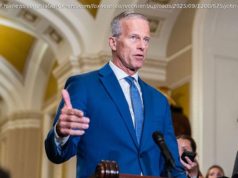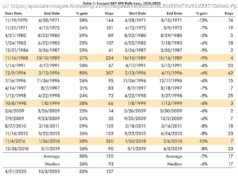To some survivors, the declaration instead of a public health emergency is too little, too late.
Embed
Share
Parents of children who overdosed on opioids have waited patiently for President Trump to declare the epidemic a “national emergency,” as he twice promised he would.
On Thursday, some were disappointed.
To some survivors, the declaration instead of a public health emergency is too little, too late.
The distinction is an important one as these parents were hoping for a flood of extra funding for the epidemic that’s claimed tens of thousands of lives, and Trump’s declaration does not include that. It also includes less than what Trump’s Commission on Combating Drug Addiction and the Opioid Crisis recommended in its preliminary report in July.
The White House action is “like trying to put a Band Aid on a fatal wound,” says Charlotte Wethington of northern Kentucky, who lost her son to a heroin overdose 15 years ago. “It is absolutely ridiculous that we have not done more in the time that this epidemic — pandemic — has been going on.”
Wethington has been a leading advocate for those with addiction disease in Kentucky and several other states. Kentucky passed the Matthew Casey Wethington Act for Substance Abuse Intervention in 2004, a law allowing for involuntary, court-ordered treatment.
New Jersey Gov. Chris Christie, who chairs the president’s opioid commission, told USA TODAY that a public health emergency should put pressure on Congress to act.
A national emergency, however, may have allowed the use of funds from the Federal Emergency Management Agency, which prepares for and responses to disasters.
How fast that would have happened, says National Council for Behavioral Health’s Joe Parks, would depend on administrative decisions, and “how much funding they have left considering the demand on their funding due to the recent hurricanes, flooding, and fires.”
“It would make extra funding available, but it also probably would’ve forced Congress to give FEMA more funding to meet all those obligations,” says Parks, a physician who is the council’s medical director.
In Fargo, N. D., Lillee Henkel welcomed Trump’s addition of medication-assisted treatment through telemedicine and the expansion of grants for workers who lose jobs due to addiction. She struggled through seven years of opioid pain pill addiction until quitting for good early this year.
Poor access to treatment and fear of repercussions at work slowed her progress toward recovery. She had private insurance and found it difficult to find a treatment center that would accept it. Many seemed more willing to serve those ordered into treatment by courts or receiving government benefits.
“I honestly didn’t know that I could get help when I was in crisis with it,” says Henkel, 45. “I had a job; how do I tell my employer and not get fired?
Henkel, who has two children, says she “was scared for everyone in my life to find out, and felt like a failure.” Now, she sees the importance of the “crisis being given a voice” so is speaking publicly. Declaring a public health emergency at least acknowledges the seriousness of the issue, even if the funding isn’t commensurate with the problem, she says.
Henkel says she hopes others will get help before their addiction progresses for years and requires in-patient treatment, as hers did when she became hooked on pain pills after hip replacement surgery.
The public health emergency allows health commissioners including Baltimore’s Leana Wen to redirect money from other programs toward opioids. But Wen, an emergency physician, says “repurposed funding” isn’t enough: “We already have extremely limited funds.”
Wen’s office has had to ration the existing supply of the overdose reversal drug, naloxone and has run out of funding to buy more. If she got 10,000 more units of the expensive drug, Wen says her office could distribute all of it by the weekend.
Trump, she says, could also negotiate lower prices from the drugmakers so there would be more of the drug to go around.
Kimberly Wright, who leads a private Facebook support and advocacy group, Kentucky Parents Against Heroin, also wanted to see the administration do far more. She lost her sister to a heroin overdose and her daughter is in recovery.
Wright applauded Trump’s announcement that he will speed the approval process for states that want treatment centers to be able to get Medicaid reimbursement if they have more than 16 beds. A federal rule currently prohibits this. Four states have gotten waivers from the rule.
Without waivers, “Our kids can’t stay there,” she said.
Wethington says the public health emergency is but the latest example of what she finds frustrating.
“We could have intervened on this epidemic much sooner,” she said. “If we treated this like any other disease, we would have.”






